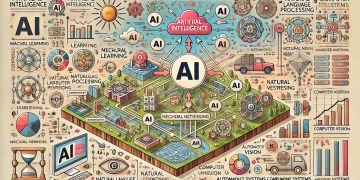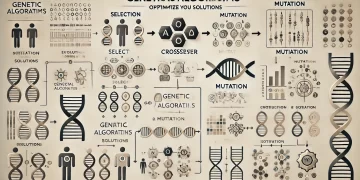Artificial Intelligence (AI) is revolutionizing the fields of law and governance by enhancing efficiency, improving decision-making, and automating routine tasks. AI-driven solutions help legal professionals, government agencies, and policymakers streamline operations, increase transparency, and provide better services to citizens. This article explores various AI use cases in law and governance, demonstrating how AI is shaping the future of legal and public administration.
1. AI-Powered Legal Research and Document Analysis
AI-driven tools streamline legal research by analyzing vast databases of case law, statutes, and legal documents. Natural Language Processing (NLP) algorithms help legal professionals find relevant precedents, extract key information, and summarize complex texts, reducing research time and improving accuracy.
2. Contract Analysis and Automation
AI-powered contract analysis tools use machine learning to review contracts, detect inconsistencies, and ensure compliance with regulations. Automated contract drafting systems help lawyers generate standard agreements quickly, reducing manual effort and minimizing errors.
3. AI in Judicial Decision Support
AI assists judges and legal professionals by analyzing case histories, predicting case outcomes, and recommending sentencing guidelines. AI-driven analytics help courts manage caseloads more efficiently and reduce judicial backlogs.
4. Predictive Analytics for Legal Risk Assessment
AI helps law firms and corporate legal departments assess risks associated with legal disputes, regulatory compliance, and contract negotiations. Predictive analytics tools analyze historical data to estimate litigation success rates, enabling better decision-making.
5. AI in Regulatory Compliance and Policy Analysis
AI-driven regulatory compliance systems monitor changes in laws and regulations, helping businesses and government agencies stay compliant. AI-powered policy analysis tools assist policymakers in evaluating the potential impact of new regulations through data-driven simulations and risk assessments.
6. AI-Powered e-Governance and Public Administration
AI enhances e-governance by automating administrative processes, improving service delivery, and increasing citizen engagement. AI-driven chatbots and virtual assistants help citizens access government services, answer queries, and process applications efficiently.
7. AI for Fraud Detection and Anti-Corruption Measures
AI-driven fraud detection systems analyze financial transactions, procurement records, and government spending to identify anomalies and detect fraudulent activities. AI helps law enforcement agencies and anti-corruption bodies investigate and prevent financial crimes.
8. AI in Dispute Resolution and Online Mediation
AI-powered dispute resolution platforms facilitate online mediation and arbitration, helping parties settle conflicts without going to court. AI-driven tools analyze case histories, recommend fair settlements, and streamline alternative dispute resolution processes.
9. AI for Cybersecurity and Data Protection in Legal Systems
AI strengthens cybersecurity in legal systems by detecting cyber threats, monitoring network activities, and preventing data breaches. AI-driven privacy tools ensure compliance with data protection laws, safeguarding sensitive legal and government information.
10. AI-Enabled Legislative Drafting and Policy Making
AI assists lawmakers in drafting legislation by analyzing existing laws, public sentiment, and policy outcomes. AI-driven analytics help governments make data-driven decisions, ensuring effective policy implementation and governance.
Conclusion
AI is transforming law and governance by automating processes, improving decision-making, and increasing transparency. From legal research to policy analysis, AI-driven solutions enhance efficiency and accountability in legal and public administration. As AI technology evolves, its integration into law and governance will play a crucial role in shaping fair, efficient, and responsive legal systems.
References
- Harvard Law Review. (2023). “AI in Legal Research and Judicial Decision-Making.”
- World Economic Forum. (2022). “The Role of AI in Governance and Public Administration.”
- McKinsey & Company. (2023). “AI-Driven Regulatory Compliance and Risk Management.”
- Deloitte Insights. (2023). “AI in Fraud Detection and Anti-Corruption Initiatives.”
- Gartner. (2022). “E-Governance and AI-Powered Public Services.”
- PwC. (2023). “AI for Cybersecurity and Data Protection in the Legal Sector.”




































